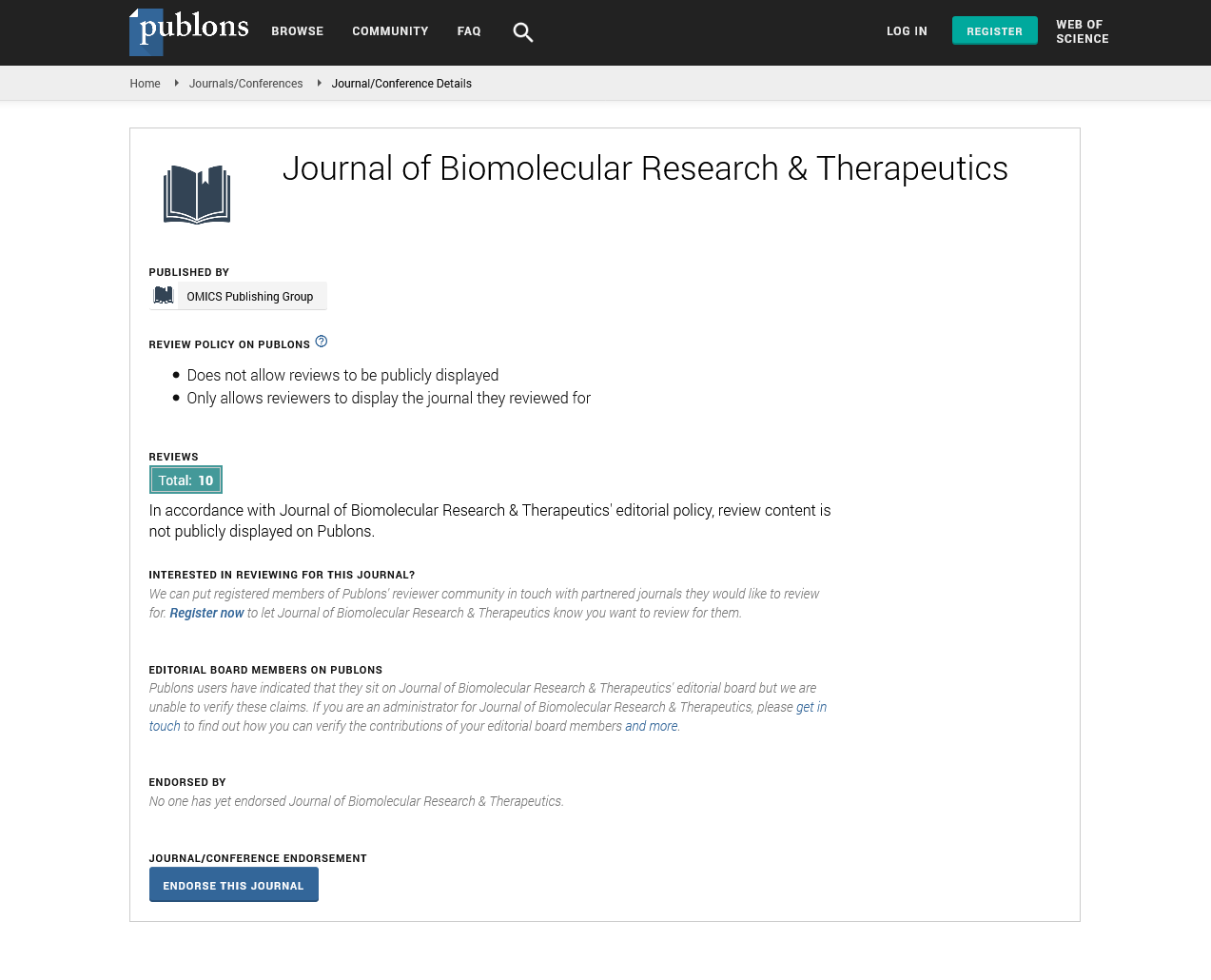Indexed In
- Open J Gate
- Genamics JournalSeek
- ResearchBible
- Electronic Journals Library
- RefSeek
- Hamdard University
- EBSCO A-Z
- OCLC- WorldCat
- SWB online catalog
- Virtual Library of Biology (vifabio)
- Publons
- Euro Pub
- Google Scholar
Useful Links
Share This Page
Journal Flyer

Open Access Journals
- Agri and Aquaculture
- Biochemistry
- Bioinformatics & Systems Biology
- Business & Management
- Chemistry
- Clinical Sciences
- Engineering
- Food & Nutrition
- General Science
- Genetics & Molecular Biology
- Immunology & Microbiology
- Medical Sciences
- Neuroscience & Psychology
- Nursing & Health Care
- Pharmaceutical Sciences
Abstract
An Overview of the Therapeutic Effects of Camel Milk in the Treatment of Type 1 Diabetes Mellitus
Abdalla KO
The main treatment of type 1 diabetes mellitus (DM) is insulin replacement via parenteral routes, which is far from satisfactory. Camel milk is an alternative to current insulin treatment. This paper discusses the chemical constituents and properties of camel milk, recent experimental evidences about the effectiveness of camel milk in the treatment of insulin dependent diabetes mellitus, role of the camel milk in the restoration of damaged beta-cells of the pancreas and in the improvement of disturbed lipid metabolism associated with type 1 DM as well as the effects of camel milk in the improvement of clinical function parameters of the kidneys and liver of subjects with insulin dependent diabetes mellitus.
This paper demonstrates that, camel milk causes significant reduction in insulin dosages in insulin dependent diabetic subjects to obtain glycemic control along with significant improvement in HbA1c level, and improvement in micro albuminuria. Significant improvements were also observed in lipid metabolism, body mass index (BMI), biochemical parameters of the liver and kidney functions of camel milk fed experimental subjects with type-1diabetes. Camel milk works as a regulator of blood sugar in the absence of original insulin, and it seems to work together with the body’s own restorative and regenerative abilities. Camel milk is well tolerated and its uses are not associated with an increase in hypoglycemic events. Camel milk may be able to eliminate the alloxan and other chemicals’ induced-toxicity on pancreas and on other body organs via regenerative effects on damaged cells and could be used as a restorative treatment of diabetes.

